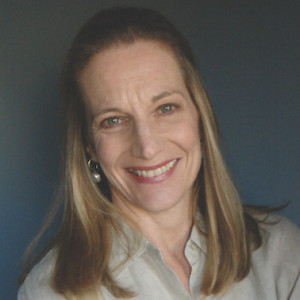
I don’t know any reader who would put up with unleavened difficult-and-dark. KH: I don’t know how anyone without a sense of humor puts one foot in front of the other. Why do you think it’s important to include humor and wisdom when dealing with serious topics? GE: While often dealing with difficult and dark aspects of life, you are able to infuse your writing with bits of humor and wisdom that reveal different layers of the stories you tell. The page offered me the single means I had to pay homage to someone I loved, a person whose death I wanted the reader to mourn with me.

True Crime began with my need to understand my addiction to pulpy true crime: what did it mean? Keeping Vigil asks the reader bear witness to the death of my father-in-law. I can’t write a decent essay that isn’t driven by unconscious pressure. The novels I’ve outlined are the ones I’ve tossed almost before they were begun. Nothing comes out as I expect, because I’ve never written anything whose ending I could anticipate, nor begun anything with a destination in mind. The only reason I reread anything I write is to see how it was I solved a narrative problem similar to the one I’m facing in the moment. Always dissatisfied, focused on growing, evolving. KH: In as much as I’m always excavating my past, I am always looking forward in terms of my work. GE: How has time affected the way you view your “family album”? Are there any stories you wrote that came out differently than you expected? Which is what we all want, isn’t it: to find meaning in suffering? I can’t speak to the audience’s rewards, but it’s my good fortune to be able use my life as material, and to give its measure of pain meaning. What might otherwise be exhibitionism reflects an attempt to correct for the life of a solitary. I intend my work to be a vivisection I’m the object of my own scalpel and scrutiny and can form a closed circuit that excludes the world, and provides unexpected solace. In the grocery store or on the subway that’s a liability.

KH: It isn’t a challenge to make myself emotionally vulnerable, because I write as the person I am: emotionally vulnerable in any context. What do you feel are the challenges and rewards of being so emotionally vulnerable with your audience? GE: The stories within your new collection are deeply personal, ranging from your own complicated childhood to your experiences as an adult with children of your own. A collection doesn’t have a plot the way a novel does, but I could assemble the parts with the intention of creating conflict, rising tension, crisis, denouement: an emotional arc rather than one formed by plot. After content, the next challenge was to sequence the parts so they came together in a narrative arc. Essays that were completely personal, completely me.īy 2014, I had thirteen essays that were thematically united by time: they represent a chapter in a life. From that point forward, I wrote only what I couldn’t help writing. Almost without exception, the better essays were driven by my own psychic need to explore something, not conceived in response to an editor’s idea. For that collection, I reviewed all the short pieces I’d written in a decade. KH: Assembling Seeking Rapture, a collection of essays written between 19, taught me what I hope makes True Crimes a better book.

Did you know from the start that you were writing a collection, or did the stories come to you separately with a clear collection forming later? How did you know when the collection was complete? GE: Your new collection of essays True Crimes: A Family Album, was written over the course of more than ten years. We knew we were going to stay on the East Coast, and we also knew-immediately, I think-that we’d always look back on those years in the Midwest as having a grace we’d left behind. Our editorial jobs, which we were fortunate enough to find relatively quickly, barely covered our expenses and demanded a fifty or sixty-hour week. I had three days to find an apartment whose rent, I discovered, would be three times what we paid for a house in Iowa City. I flew east to find a place to live Colin followed with a U-Haul. As the title essay recounts, Colin and I catapulted ourselves from Iowa City to New York without really thinking.

I met Colin there we’ve been married more than half my life. I lived in Iowa from 1985 to 1987, when I was at the Writer’s Workshop. Giuliana Eggleston: What’s your connection to the Midwest? Midwestern Gothic staffer Giuliana Eggleston talked with author Kathryn Harrison about her novel True Crimes: A Family Album, finding meaning in suffering, prose that carries a hidden knife, and more.


 0 kommentar(er)
0 kommentar(er)
